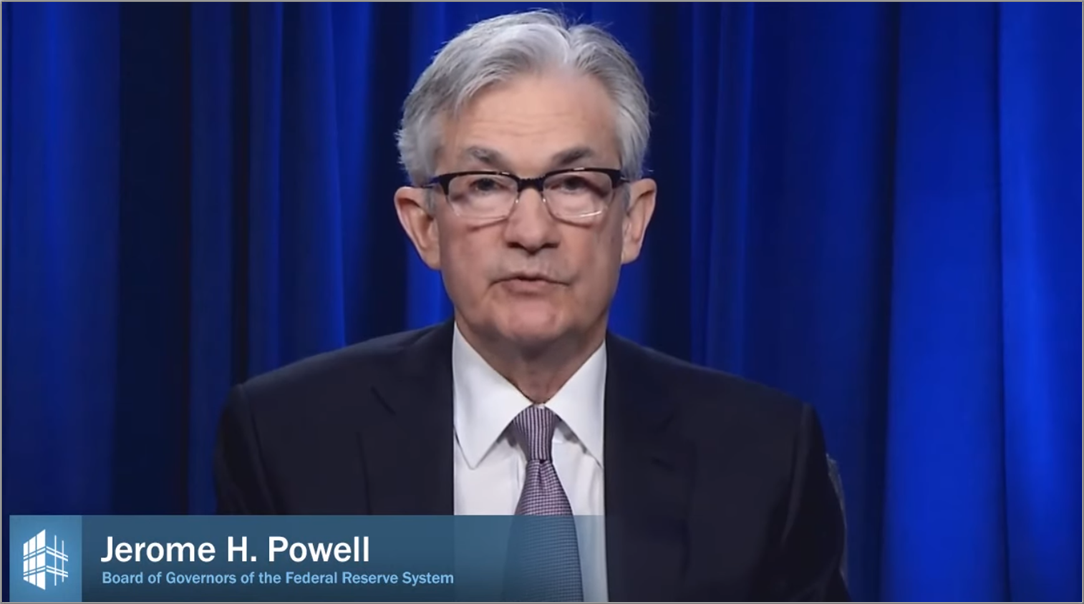(May 13, 2020, 4 p.m. ET) During this bleak period in world history, amid the terrible news of death, sickness and financial destruction, there are reasons for hope and promising signs of a U.S. recovery from the Covid-19 pandemic.
After the Standard & Poor's 500 stock index bottomed on March 23, 2020, it soared more than 20%. The March 23 low coincided with the release of details on the $2.2 trillion Coronavirus Aid, Relief, and. Economic Security (CARES) Act. The Act was signed into law March 27, 2020. This swift action by the U.S. Government likely prevented an economic calamity that would have been far worse.
The CARES Act allocated $454 billion to Federal Reserve Bank Special Purpose Vehicles that the central bank can leverage 10 to 1, thereby enabling it to lend up to $4.54 trillion to companies in financial distress. The Fed funding vehicle was unprecedented in size and represents an historic moment within the annals of modern central bank intervention. Never before in a crisis has any nation's central bank flexed its financial muscle in this way. The U.S. has expanded the power of its sovereignty, placing a new and unprecedented type of safety net in position to cushion the economic fall from the almost complete shutdown of the economy.
 In a speech today, Fed Chairman Jerome Powell warned that without more relief from Congress and continued Fed loans to aid ailing industry sectors and promote further liquidity, the risk of long-term damage to the economy would remain heightened. "At the Fed," said Mr. Powell, "we will continue to use our tools to their fullest until the crisis has passed and the economic recovery is well under way." His frank remarks show the Fed is prepared to meet the crisis by playing a larger role in managing the economy than perhaps any other central bank in world history.
"The recovery may take some time to gather momentum, and the passage of time can turn liquidity problems into solvency problems," Mr. Powell said. "Additional fiscal support could be costly, but worth it if it helps avoid long-term economic damage and leaves us with a stronger recovery."
Although past performance is not a guarantee of future results, the chart illustrated above shows the stock market bottomed three to six months before the end of each recession since 1957, another hopeful sign.
The Standard & Poor's 500 (S&P 500) is an unmanaged group of securities considered to be representative of the stock market in general. It is a market-value weighted index with each stock's weight proportionate to its market value. Index returns do not include fees or expenses. Investing involves risk, including the loss of principal, and past performance is no guarantee of future results. The investment return and principal value of an investment will fluctuate so that an investor's shares, when redeemed, may be worth more or less than their original cost. Current performance may be lower or higher than the performance quoted. Nothing contained herein is to be considered a solicitation, research material, an investment recommendation, or advice of any kind, and it is subject to change without notice. It does not take into account your investment objectives, financial situation, or particular needs. Product suitability must be independently determined for each individual investor. This material represents an assessment of the market and economic environment at a specific point in time and is not intended to be a forecast of future events or a guarantee of future results. Forward-looking statements are subject to certain risks and uncertainties. Actual results, performance, or achievements may differ materially from those expressed or implied. Information is based on data gathered from what we believe are reliable sources. It is not guaranteed as to accuracy, does not purport to be complete, and is not intended to be used as a primary basis for investment decisions. |